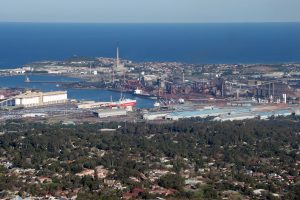Jirsch Sutherland is again hitting the road over the next few months, with a number of meet and greets and informal educational seminars taking place throughout regional and rural Australia.
From Broome in Western Australia, to Portland in Victoria, to Wollongong in New South Wales and Roma in Queensland, our insolvency information sessions are proving invaluable to local communities right across the country.
“Insolvency law is extremely complex. Outside of the major metropolitan cities, business owners and their advisers, such as lawyers and accountants, often do not have access to appropriately qualified insolvency specialists,” says Jirsch Sutherland Business Director, Rebecca Hindson. “In fact, there’s often a misguided idea about what services we can provide and the benefits we can offer struggling businesses. 
“What we are hearing, are real stories about: struggling businesses that are on multiple payment arrangements with the ATO; a general lack of understanding around what fraudulent phoenix activity consists of and understanding how it is detected and dealth with; and questions around how struggling businesses could access alternative finance.
“Our knowledge of local economies, combined with our national presence and resources means Jirsch Sutherland Partners and Business Directors are well placed to offer practical solutions to these local business communities. Whether the business requires our services or might benefit from a relationship we have with another service providers. We aim to provide solutions that are relevant and timely. We pride ourselves on being honest and literally getting out into the community – whether in regional, rural or metropolitan areas – to help our clients and their clients.”
Working and collaborating with local advisers
This year alone, Jirsch Sutherland Partners and Business Directors have already visited over 40 regional centres and country towns. Our information and education sessions with local lawyers, accountants and company directors on the options available to companies that might be in financial difficulty (such as restructuring or turnaround solutions, voluntary administration or liquidation) have been particularly well received and certainly created many discussions afterwards.
Don’t be misguided – Liquidation and Voluntary Administration are not the same
A particular focus of the educational seminars taking place around the country is on the benefits of a company going into voluntary administration.
“What we are finding is that regional communities have not made the distinction between a company going into liquidation versus voluntary administration,” Rebecca explains.
“It has been a personal focus of mine in our insolvency educational seminars to highlight the benefits of the administration process. Where there is a genuine belief that a company has a good core business but is struggling with debt and overheads, then a director should be considering trading on through the process of voluntary administration with the assistance of an administrator.
 The process is designed for an independent insolvency firm such as ours to work with the director to assist the company in surviving. The process is usually short and is commercially viewed as a positive move for all of the key stakeholders, including creditors and employees.
The process is designed for an independent insolvency firm such as ours to work with the director to assist the company in surviving. The process is usually short and is commercially viewed as a positive move for all of the key stakeholders, including creditors and employees.
Our regional and rural visits are all about experience and exposure. Insolvency is a highly specialised area of accounting and law, and most firms tend to be based in the major cities. We are proud to be able to address this imbalance.”











